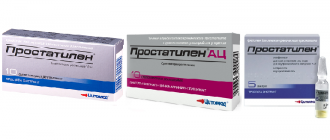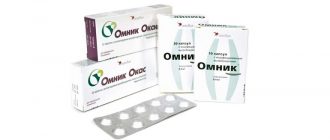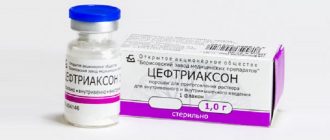Indomethacin is used for prostatitis due to its anti-inflammatory and antirheumatic properties. The drug belongs to the group of non-steroidal anti-inflammatory drugs (NSAIDs). It exists in several dosage forms, but suppositories are used to treat inflammation of the prostate gland.
Release form and composition
The drug exists in the following dosage forms:
- pills;
- ointment;
- gel;
- rectal suppositories (suppositories).
In the treatment of inflammation of the prostate gland, rectal suppositories are used.
Indomethacin suppositories for prostatitis get their name from the main component of the medicine. They are available in two types, depending on the concentration of the drug substance - 50 and 100 mg.
The suppositories are white and torpedo-shaped. Packed in contour cells of 3 and 5 pieces. In cardboard packs of 2 contour packages. The amount depends on the manufacturer of the drug.
The drug is dispensed only with a prescription from your doctor.
Manufacturers
The drug is produced by several pharmacological companies:
- German company - Berlin-Chemie. It produces suppositories of 50 and 100 mg of active ingredient, containing 10 pieces per package.
- Bulgarian company – Sopharma. Suppositories with 100 mg of active ingredient, 6 pieces in 1 package.
- Russian enterprise – Altfarm. Suppositories of 100 mg of active substance, 10 pieces per package.
- Russian enterprise – Biosynthesis. Concentration of the active substance is 50 mg, 10 suppositories per package.
- Moldavian company – Pharmaprim. The concentration of the active substance is 50 mg, contains 6 suppositories.
pharmachologic effect
Indomethacin is a derivative of heteroauxin (β-indoleacetic acid). Relieves inflammation, reduces temperature, has an analgesic effect. The drug inhibits the enzyme COX (cyclooxygenase), preventing the formation of prostaglandins, which provoke these phenomena.
Suppositories for prostatitis with indomethacin block the formation of blood clots, help strengthen capillaries, help increase metabolism at the cellular level, and activate blood circulation.
As a result of using the drug, the following occurs:
- Improvement in general condition (pain relief).
- Urination is normalized (swelling and inflammation are relieved).
- Intimate life is normalized (sexual desire increases, the duration of sexual intercourse increases, the risk of premature ejaculation decreases).
Indications
Due to its wide range of therapeutic effects, it is used for many diseases:
- inflammation of the prostate gland (including bacterial form);
- diseases of the musculoskeletal system;
- arthritis of various origins (rheumatoid, psoriatic, juvenile, gouty);
- respiratory tract diseases;
- headache and toothache;
- urinary tract diseases;
- diseases of the female genital organs (andexitis, algodismenorrhea);
- neuritis.
For prostatitis, suppositories are most often prescribed, since they act directly on the source of inflammation through the wall of the rectum.
Contraindications
With a single use there will be no side effects, but with systematic use it is necessary to pay attention to the presence of a number of contraindications:
- Liver dysfunction (viral hepatitis, cirrhosis).
- Disorders of the gastrointestinal tract (gastric ulcer, duodenal ulcer, ulcerative colitis).
- Diseases of the cardiovascular system (heart failure, high blood pressure and others).
- Haemorrhoids.
- Poor blood clotting.
- Epilepsy.
- Bronchial asthma.
- Kidney and liver failure.
Should be used with caution in old age.
Side effects include the following:
- from the digestive system (diarrhea, constipation, nausea, vomiting, loss of appetite, liver dysfunction, heartburn, anorexia);
- from the urinary tract (impaired kidney function, the presence of blood in the urine, inflammation in the connective tissue and tubules of the kidneys, necrosis of the renal papillae);
- allergic reactions (redness in the anal area, itching, burning)
- bleeding;
- metabolic disease.
The medicine affects concentration and reaction speed. Therefore, it is necessary to refrain from driving vehicles and potentially dangerous work.
The drug is incompatible with some medications, so you should consult your doctor before use.
Instructions for use
In the instructions for using Indomethacin suppositories for prostatitis, it is recommended to use the medicine at a rate of 100 mg of the active substance per day, i.e. one suppository with 100 mg of the active substance, or 2 x 50 mg - 2 times a day.
It is recommended to take indomethacin for prostatitis in the evening when the intestines have been emptied. If this does not happen on its own, you need to do a cleansing enema or take a mild laxative.
The course of treatment with Indomethacin suppositories for prostatitis is prescribed by a doctor, it depends on the degree of the disease and the age of the patient.
Analogs
Due to many contraindications and side effects, Indomethacin cannot be used by all patients. The following drugs can be prescribed as analogues:
- Voltaren.
- Diclofenac.
- Ibuprofen.
- Ketoprofen.



